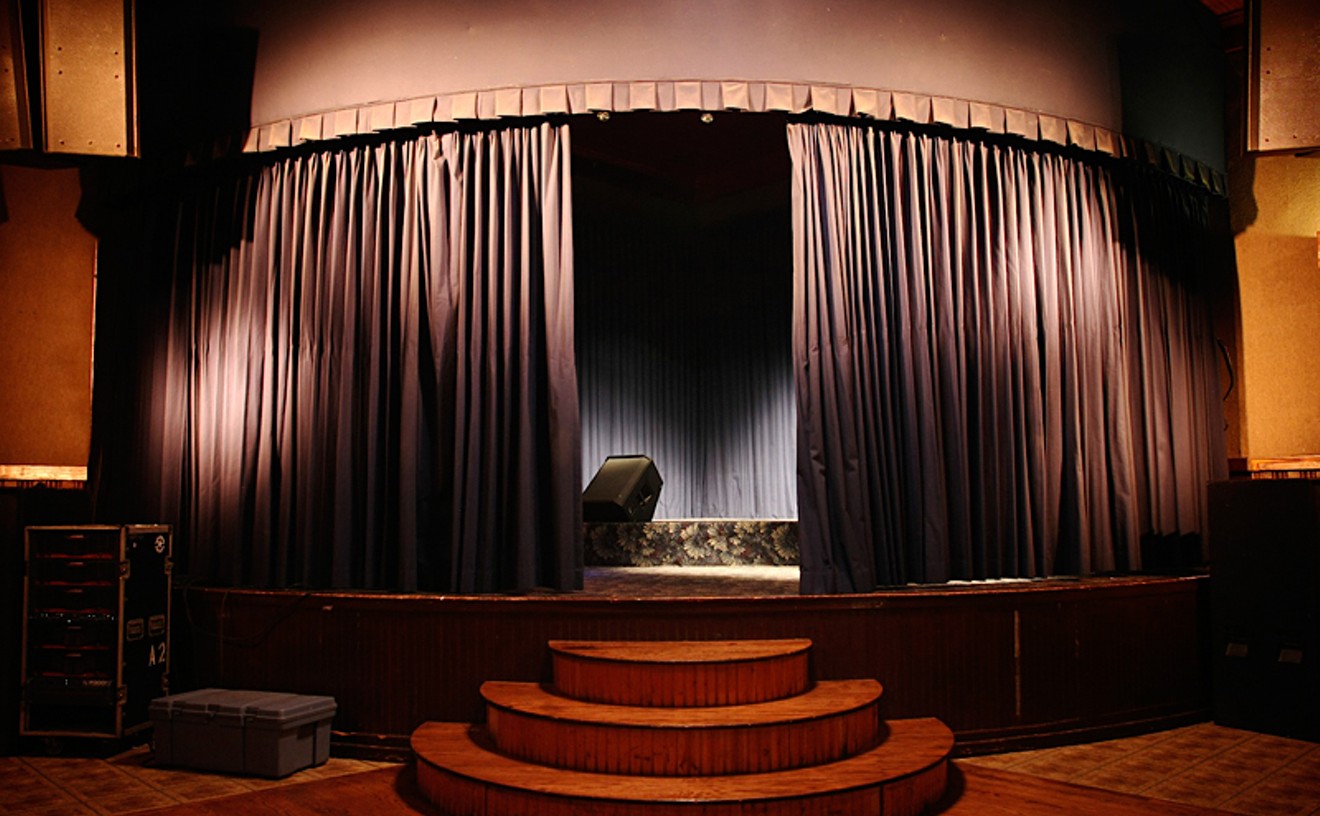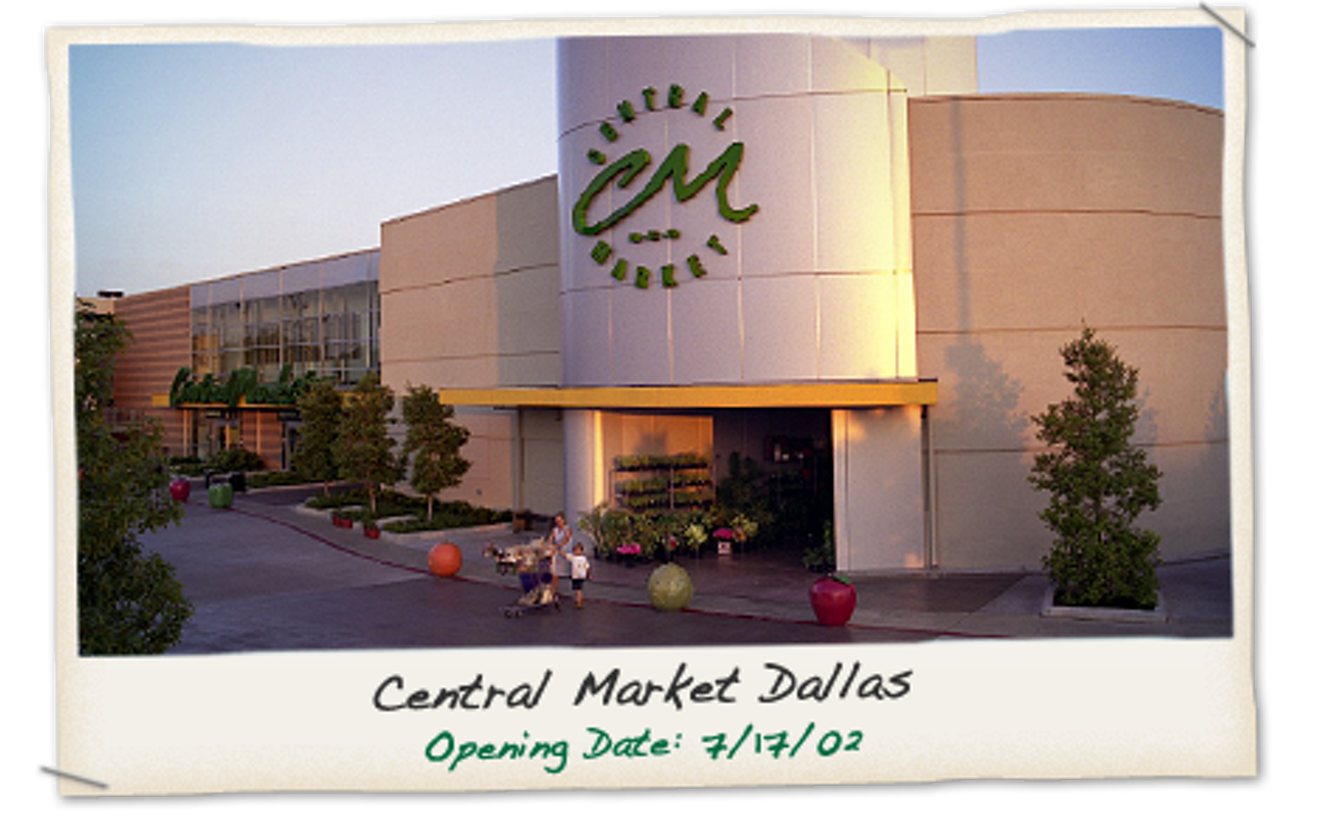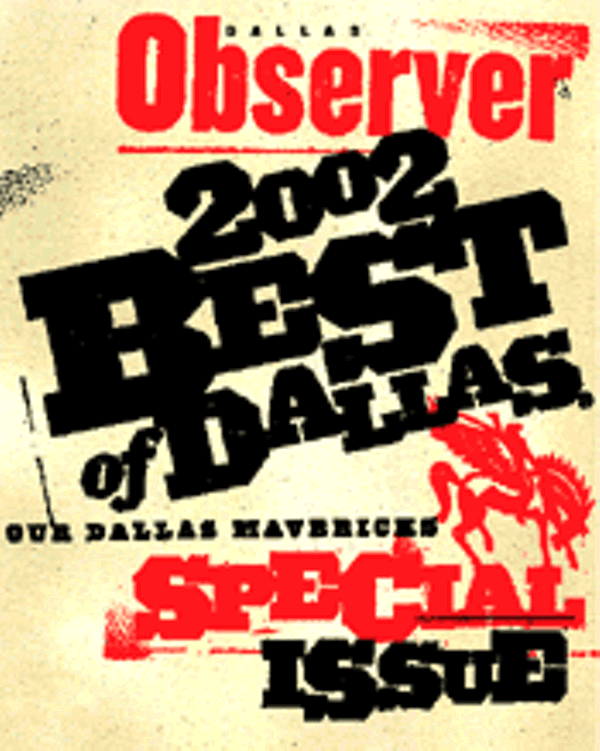If necessity is the mother of invention, then needing a cold beer must be the mother of all necessities. Because that was essentially the spark behind the Entertainment Collaborative, a klatch of successful formula-repellent entertainment and hospitality concepts hunkered down in Deep Ellum and downtown. The thirsty parent of this collaboration is 34-year-old Brady Wood, who as an SMU student back in 1988 was flustered that he couldn't hip-check his way through the hordes stacked 10 deep at the bar in the Rhythm Room to get a beer. He complained. The owner snapped back that he should buy the place if he didn't like it. "Within two weeks we sold our cars," says Brady's brother Brandt, 36, who directs marketing and concept development for the EC. "I think there were some neckties in the transaction, too."
But it would take a lot more than just the Rhythm Room to yank Brandt Wood from his New Orleans home to join his brother's bar venture. Brandt was set to join the family business, a marine contracting venture that builds levees, deepens waterways and assembles docks. "I grew up with the idea that Mardi Gras and Jazz Fest and all this great food in New Orleans was the way life was supposed to be," he admits. "I came to Dallas to visit Brady...and as I got to know the city more, I realized there was really something different about Dallas." Most notably Brandt realized that New Orleans is long on culture but has no money, while Dallas is long on capital but has a cultural depth of windshield dew. "So you have this contrast," he explains.
This chasm became a mission for the Wood brothers, and they sought to close it in perhaps the only way college-bar entrepreneurs could: by creating really cool places to drink. In 1990, they opened the Green Elephant, a "'60s hippie concept" bar and restaurant that took its name from an EZ Haul travel-trailer logo featuring a family of elephants (the Green Elephant was sold to its managers in 1996). In 1991, the brothers picked up Trees, a Deep Ellum live music venue, through some fancy legal footwork by assuming the befuddled owner's debts and tax obligations.
Trees was a success. And soon the brothers noticed their Trees patrons and performers were scooting off to Deep Ellum Café to eat before and after shows. So they decided to vie for a share of that belly space by formulating a restaurant that was both street-smart and refined. And a little daffy. "I lived on one of the banquettes there for two months, decorating it at night," Brandt says. "If you ever wonder why it's such a strange mix of décor...it's because it all made a lot of sense in the middle of the night." Brandt says he thought Green Room represented one thing Dallas didn't have, but needed: a gourmet restaurant in a funky neighborhood that didn't take itself too seriously. "We never planned a menu, much less a wine list," he admits. "But we knew how to make a place look cool." People told the Woods they were nuts, that no self-respecting "foodie" would trek down to Deep Ellum to nosh. But the Woods saw a mode of convergence in their little Green gourmet adventure: an opportunity to drive a generational transition; to take their bar crowds and bump them up to the next step in culture, all without their even knowing it. It worked.
They parlayed this intuitive know-how into the husks of downtown. Brandt Wood long had his eye on the ground floor of the Kirby building for a downtown brasserie. But the landlord was keen on pursuing some of the city's better-known, more established operators to create a street restaurant. "The response was, 'I think these guys are too young,'" Brandt says. Turned out those more established operators were too skittish to take a downtown fine-dining plunge.
Through Brady's negotiating footwork, the space was secured and Jeroboam was born. And Jeroboam boomed. "Jeroboam was a vision that conceptually we knew Dallas needed," Brandt says. "We saw downtown progressing before it was a news item." This insight was accrued through EC's efforts to cobble together participants and backers for Dallas 2000 and Dallas 2001, a pair of downtown New Year's Eve events. This work also inadvertently led to Umlaut, a subterranean New York-London modern lounge the EC opened in 2001 after discovering the space during the production of these parties.
Now the EC is gambling on an even further divergence from its club core: retailing. Armed with a portfolio of Deep Ellum real estate gathered over the years, the EC is banking that Deep Ellum can be successfully morphed into a gritty urban shopping mecca, with both national nameplates and local upstarts. But nobody wants to be first out of the chute. So the EC will chop the shopping path through the Deep Ellum weeds.
It's a small boutique called Star Cat, set to open in early October in the space across from Trees. This hip grit shop will sell apparel, shoes, handbags and concert tickets. Brandt Wood admits he's no retail wizard (he was no food and wine wizard either, he says). But he insists he's never been afraid to pull the trigger, adding that the only concepts the EC has ever lost money on are the ones that never made it off the drawing board. The Woods prove that it is perhaps best to reconquer established ground with ideas that seem daffy at first blush. Then again, nothing seems daffy after a cold beer.







